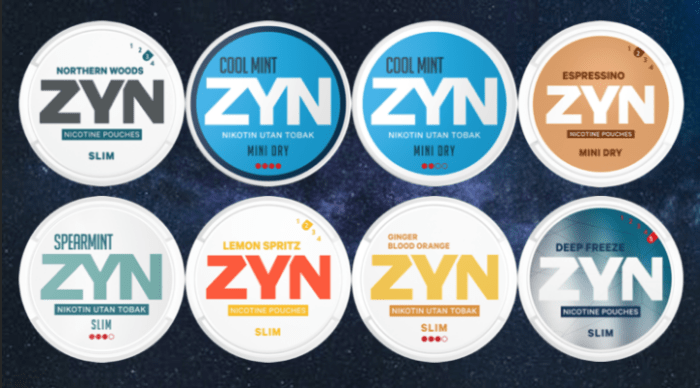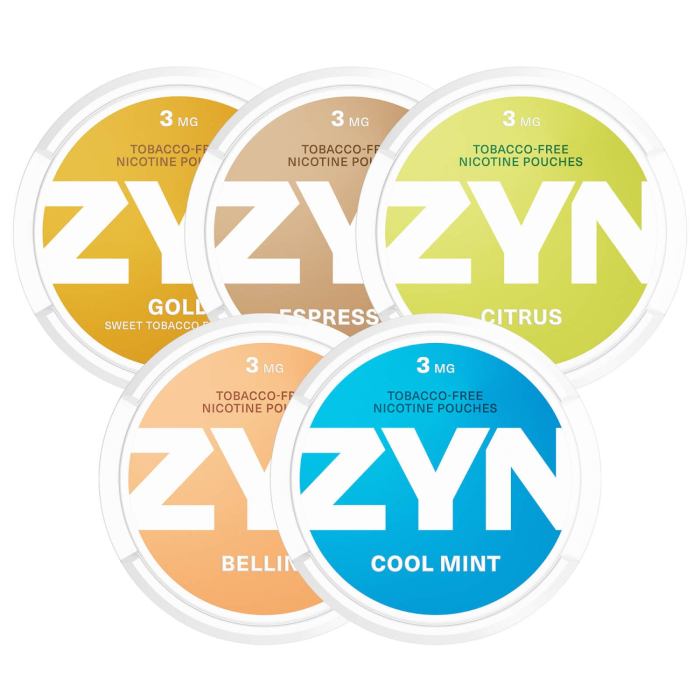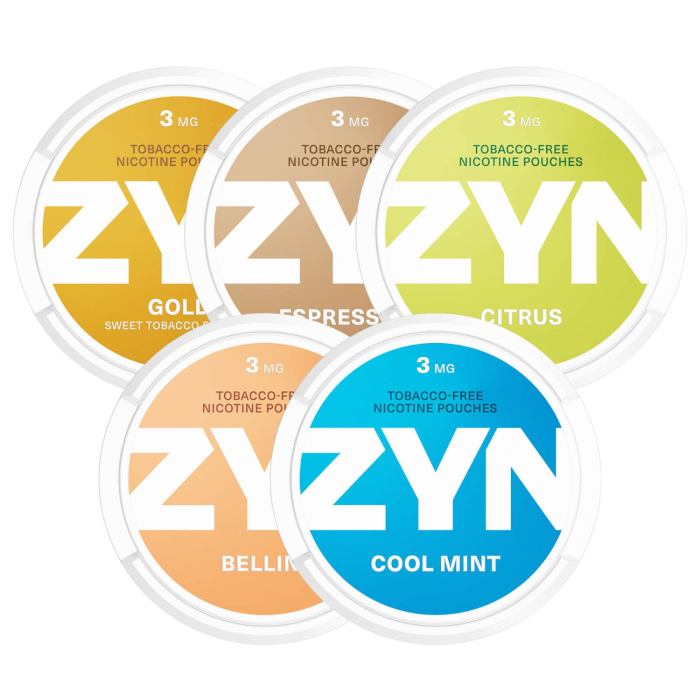Are energy drinks bad for you? This deep dive explores the potential health effects of these popular beverages, examining both short-term and long-term risks. We’ll look at ingredients, impact on specific groups, and healthier alternatives.
From the caffeine rush to potential long-term health consequences, this article provides a comprehensive overview of the pros and cons of energy drinks. We’ll analyze their ingredients, compare them to other caffeinated beverages, and investigate their effect on various demographics, from athletes to pregnant women. Discover the scientific evidence and discover practical recommendations for a healthier lifestyle.
Health Effects of Energy Drinks
Energy drinks have become increasingly popular, promising a boost in energy and focus. However, the potential health consequences of their consumption are substantial and warrant careful consideration. While a single serving might not cause immediate harm, regular and excessive consumption can lead to a cascade of negative effects on the body.
Short-Term Effects
Energy drinks are potent stimulants, primarily due to their high caffeine content. This leads to a rapid increase in heart rate and blood pressure. Individuals experiencing these effects might feel jittery, anxious, or even experience insomnia. The short-term effects can also include digestive issues like nausea or stomach upset. Furthermore, the high sugar content in some energy drinks can contribute to a rapid spike in blood sugar levels.
Long-Term Health Risks
Regular consumption of energy drinks can have significant long-term consequences. Prolonged exposure to high levels of caffeine can lead to tolerance and dependence. When the consumption is stopped, withdrawal symptoms such as headaches, fatigue, and irritability can occur. The cardiovascular system is particularly vulnerable to the sustained effects of these drinks. Chronic high blood pressure can increase the risk of heart disease and stroke.
Furthermore, the long-term impact on sleep patterns is significant, contributing to chronic fatigue and impacting overall well-being. Sleep deprivation can also impair cognitive function and reduce productivity. It’s important to note that the cumulative effect of these risks can manifest over time, often leading to gradual but potentially severe health problems.
Effects of Stimulants
The primary stimulants in energy drinks, including caffeine and other compounds like guarana and taurine, significantly affect the central nervous system. Caffeine acts as a central nervous system stimulant, increasing alertness and reducing fatigue. However, excessive caffeine intake can lead to restlessness, anxiety, and difficulty concentrating. Taurine, often touted as an energy booster, doesn’t have the same level of potency as caffeine but can contribute to the overall stimulating effect.
Other ingredients, like guarana, also contain caffeine-like substances and contribute to the overall stimulating effect.
Comparison with Coffee and Other Caffeinated Beverages
Energy drinks are often compared to coffee and other caffeinated beverages. While coffee contains caffeine, the concentration and combination of stimulants in energy drinks often exceed that of coffee. The added sugars and other ingredients in energy drinks can also contribute to a different physiological response compared to plain coffee. The caffeine content in energy drinks can vary significantly, leading to differing impacts on the body.
Caffeine Content Comparison
| Beverage |
Caffeine (mg) |
| Energy Drink A |
150 |
| Energy Drink B |
180 |
| Energy Drink C |
200 |
| Strong Coffee (16oz) |
100 |
| Colas (16oz) |
30-50 |
| Tea (16oz) |
20-50 |
Note: Caffeine content can vary based on serving size and brand. This table provides a general comparison.
Ingredients and Additives
Energy drinks are often marketed as a quick pick-me-up, but their ingredients and additives can have significant, and sometimes detrimental, effects on health. Beyond the caffeine, a closer look at the components reveals a complex mixture that warrants careful consideration. Understanding these ingredients is crucial for making informed choices about consumption.The cocktail of chemicals and substances present in energy drinks can affect various bodily functions, ranging from increased heart rate and blood pressure to potential long-term health risks.
The presence of artificial sweeteners, sugar, and other additives can have a cascading impact on metabolic processes and overall well-being.
Common Ingredients and Potential Impacts
The array of ingredients found in energy drinks is often a blend of stimulants, flavor enhancers, and preservatives. These substances can have varying effects on the body, and some can be particularly concerning.
- Sugar: A significant portion of energy drinks rely on sugar as a primary energy source and flavoring agent. High sugar content can contribute to weight gain, tooth decay, and an increased risk of developing chronic diseases like type 2 diabetes. Excessive sugar intake can lead to spikes in blood sugar levels, followed by crashes, which can affect energy levels and mood.
For example, a 16-ounce serving of some energy drinks can contain more than 50 grams of sugar, equivalent to several teaspoons of sugar. Different energy drinks have different sugar contents, with some brands being considerably higher in sugar than others.
- Artificial Sweeteners: To reduce the sugar content, many energy drinks employ artificial sweeteners. While these sweeteners may help avoid the detrimental effects of sugar in the short term, their long-term health effects are still under scrutiny. Some research suggests a link between artificial sweeteners and metabolic disorders, although more conclusive studies are needed. The exact mechanisms behind these potential health concerns are still being investigated.
Some studies suggest possible associations between artificial sweeteners and altered gut microbiota, potentially affecting nutrient absorption and impacting overall health.
- Caffeine: Caffeine is a common stimulant in energy drinks, providing a temporary boost in alertness and energy. However, excessive caffeine consumption can lead to anxiety, insomnia, and heart palpitations. It’s important to be mindful of the daily caffeine intake from various sources, including energy drinks.
- Taurine: Taurine is an amino acid naturally found in the body. Its role in energy drinks is often claimed to enhance mental performance and focus. However, the efficacy of taurine as a performance enhancer in energy drinks remains debatable, and further research is needed to fully understand its impact. Some studies have indicated a potential role of taurine in the body’s metabolic processes, but the effectiveness in enhancing energy drink effects remains a point of contention.
- Other Additives: Energy drinks frequently contain a variety of other additives, including colors, flavors, and preservatives. The long-term health effects of these additives are often unknown, and more research is needed to fully assess their impact on human health.
Potential Harmful Additives
Certain additives in energy drinks have been linked to adverse health effects. This list isn’t exhaustive, but highlights some substances of concern.
Energy drinks can definitely have a negative impact on your health, but sometimes, a desire for sustained energy can lead to exploring options like weight management strategies. If you’re looking to understand how to get Ozempic, a medication that can help with weight loss, you’ll find helpful resources on obtaining it at how to get ozempic.
Ultimately, though, the best approach for maintaining your energy levels and overall health is a balanced lifestyle that includes proper nutrition and exercise, not just relying on quick fixes like energy drinks.
- Colors: Some artificial food colors have been associated with allergic reactions and hyperactivity in children. The safety of these colors is continually being assessed.
- Preservatives: Preservatives can have potential health implications, particularly if consumed in high quantities. Some preservatives may contribute to allergies or have unknown long-term effects on the body.
- Acidity Regulators: These substances are used to adjust the pH of the drink, but their long-term effects are not well understood.
- Flavors: Some artificial flavors, while not inherently harmful, can cause allergic reactions in sensitive individuals.
Sugar Content Comparison
The sugar content varies significantly between different energy drink brands. This can significantly impact the overall health impact of the drink. Comparing the sugar content across various energy drinks can help consumers make informed decisions.
Common Ingredients and Their Potential Health Implications
| Ingredient |
Potential Health Implications |
| Sugar |
Weight gain, tooth decay, increased risk of chronic diseases (type 2 diabetes) |
| Artificial Sweeteners |
Potential link to metabolic disorders, altered gut microbiota |
| Caffeine |
Anxiety, insomnia, heart palpitations |
| Taurine |
Debatable performance enhancement, potential role in metabolic processes, more research needed |
| Colors |
Allergic reactions, hyperactivity (in children) |
| Preservatives |
Potential health implications with high consumption, unknown long-term effects |
| Acidity Regulators |
Unknown long-term effects |
| Flavors |
Allergic reactions in sensitive individuals |
Impact on Specific Groups
Energy drinks, while popular, aren’t universally safe or beneficial. Their effects can vary significantly depending on factors like age, gender, existing health conditions, and even individual metabolic responses. Understanding these variations is crucial for making informed decisions about consumption. This section delves into how energy drinks can impact different population groups.
So, are energy drinks bad for you? Well, it’s a complicated question, especially when you consider the potential side effects of treatments like chemotherapy for lung cancer. These intense treatments can significantly impact a patient’s energy levels, making it tempting to reach for an energy drink. However, those sugary, caffeinated concoctions might not be the best choice, as they could potentially exacerbate any existing health concerns.
It’s always best to talk to your doctor about any dietary changes, especially if you’re undergoing a tough treatment like chemotherapy for lung cancer , and consider healthier ways to boost your energy levels, like getting enough sleep and eating nutritious meals.
Impact on Adolescents and Young Adults, Are energy drinks bad for you
Adolescents and young adults are particularly vulnerable to the negative effects of energy drinks. Their bodies are still developing, and their systems haven’t fully matured. The caffeine and other stimulants in energy drinks can disrupt sleep patterns, leading to fatigue and decreased academic performance. Furthermore, they may experience increased anxiety, irritability, and even heart palpitations. Studies have shown a correlation between energy drink consumption and poor dietary habits, which can contribute to weight issues and nutrient deficiencies.
It’s important to be mindful of the potential consequences when considering energy drinks for this demographic.
Impact on Pregnant or Breastfeeding Women
Pregnant and breastfeeding women should exercise extreme caution when consuming energy drinks. The caffeine and other components can potentially cross the placenta and enter breast milk, impacting the developing fetus or infant. The effects on the developing nervous system are a concern. Potential risks include increased anxiety, sleep disturbances, and potentially even affecting the baby’s growth and development.
Consult with a healthcare professional before consuming any energy drinks during these crucial periods.
Impact on Individuals with Pre-Existing Health Conditions
Individuals with pre-existing health conditions, such as heart problems, anxiety disorders, or high blood pressure, should avoid energy drinks altogether. The stimulants in these beverages can exacerbate existing conditions. For example, someone with a history of heart palpitations might experience more severe symptoms after consuming an energy drink. Similarly, individuals with anxiety might experience heightened anxiety and panic attacks.
Always consult a doctor before consuming energy drinks if you have any underlying health concerns.
Impact on Athletes and Performance
The impact of energy drinks on athletes is a complex issue. While some athletes may believe that energy drinks enhance performance, the evidence is not conclusive. Caffeine, a common ingredient, can provide a temporary boost in alertness and energy, potentially improving reaction time and endurance. However, the effects can be inconsistent, and the potential for negative consequences should be carefully weighed.
Dehydration, increased anxiety, and disrupted sleep patterns are possible side effects, which could compromise athletic performance in the long run. A balanced approach to hydration and nutrition is crucial for athletic success, and energy drinks should not be relied upon as a performance-enhancing supplement.
Ever wondered if those energy drinks are really doing your body good? While the initial jolt might seem amazing, they can definitely take a toll. On a different note, have you ever noticed scabs on your scalp? If so, checking out scabs on scalp causes diagnosis and treatment could help you understand potential causes and find effective solutions.
Ultimately, it’s probably best to be mindful of what you put into your body and opt for healthier alternatives to energy drinks whenever possible.
| Group |
Potential Impacts |
| Adolescents/Young Adults |
Disrupted sleep, decreased academic performance, increased anxiety, heart palpitations, poor dietary habits |
| Pregnant/Breastfeeding Women |
Potential risks to fetal/infant development, increased anxiety, sleep disturbances |
| Individuals with Pre-existing Conditions |
Exacerbation of existing conditions (e.g., heart problems, anxiety, high blood pressure) |
| Athletes |
Temporary boost in alertness/energy, potential for dehydration, anxiety, sleep disruption |
Alternatives and Recommendations: Are Energy Drinks Bad For You
Energy drinks offer a quick fix for perceived energy slumps, but often come with a hefty price tag in terms of health consequences. Fortunately, there are many healthier and more sustainable ways to boost energy levels and maintain overall well-being. This section explores practical alternatives and strategies for managing energy without relying on these potentially harmful beverages.Choosing alternatives to energy drinks is crucial for promoting long-term health and well-being.
The ingredients in energy drinks can significantly impact the body’s natural processes, leading to detrimental effects on various systems. Switching to healthier options allows the body to function optimally and reduces the risk of negative consequences associated with energy drink consumption.
Healthier Alternatives to Energy Drinks
A variety of healthy beverages can effectively replace energy drinks, providing sustained energy without the negative side effects. These options offer essential nutrients and hydration, supporting overall health and well-being.
- Water: A fundamental component of bodily functions, water plays a vital role in maintaining hydration and energy levels. Dehydration can lead to fatigue and decreased cognitive function, making water a crucial element in managing energy levels naturally. Staying adequately hydrated is essential for optimal physical and mental performance.
- Herbal Teas: Many herbal teas possess natural energizing properties. Chamomile tea, for instance, can promote relaxation and calm the mind, while ginger tea can provide a gentle energy boost. These options provide a flavorful and soothing alternative to sugary energy drinks.
- Sports Drinks: Formulated with electrolytes and carbohydrates, sports drinks can replenish lost minerals and energy stores during physical activity. Choosing sports drinks over energy drinks ensures a balanced intake of essential nutrients for optimal performance.
Nutritional Comparison of Energy Drinks and Alternatives
The nutritional profile of energy drinks significantly differs from healthier alternatives. The table below illustrates the disparity in nutritional value.
| Item |
Energy Drinks (Example) |
Water |
Herbal Tea |
Sports Drink (Example) |
| Calories |
150-200+ |
0 |
0-5 |
50-70 |
| Sugar (grams) |
20-50+ |
0 |
Trace |
10-25 |
| Caffeine (mg) |
75-200+ |
0 |
0 |
0-20 |
| Electrolytes |
Variable |
0 |
Trace |
Present |
| Vitamins/Minerals |
Usually low or absent |
0 |
Variable |
Variable |
Practical Recommendations for Reducing Energy Drink Consumption
Gradually reducing or eliminating energy drink consumption can significantly improve overall health. A gradual approach allows the body to adjust to the change without experiencing withdrawal symptoms.
“Start by reducing the frequency of energy drink consumption, gradually replacing them with healthier alternatives.”
Strategies for Managing Energy Levels Without Energy Drinks
Maintaining optimal energy levels without energy drinks involves adopting a holistic approach. This includes implementing strategies that address underlying factors contributing to energy slumps.
- Prioritize sleep: Adequate sleep is essential for replenishing energy stores and promoting cognitive function. Aim for 7-9 hours of quality sleep each night.
- Maintain a balanced diet: Consuming a balanced diet rich in fruits, vegetables, whole grains, and lean protein provides sustained energy throughout the day.
- Regular exercise: Physical activity boosts energy levels and enhances overall well-being. Incorporate regular exercise into your daily routine.
The Importance of a Balanced Diet and Regular Exercise
A balanced diet and regular exercise are fundamental to overall well-being and sustained energy levels. These lifestyle choices contribute to a healthy body and mind, preventing the need for artificial energy boosts.
“A balanced diet and regular exercise form the foundation of a healthy lifestyle, leading to sustained energy levels and improved overall well-being.”
Scientific Evidence and Research
The scientific community is actively investigating the potential health risks associated with energy drink consumption. While some studies show correlations between energy drink use and adverse effects, the precise mechanisms and long-term consequences are still under investigation. This research area is crucial for understanding the true impact of these beverages on human health.The available research on energy drinks is multifaceted, examining various aspects from acute effects to potential chronic health concerns.
This section delves into the current state of scientific research, summarizing key findings and providing reputable sources for further exploration.
Current State of Research
Current research consistently highlights the potential for energy drinks to induce a range of adverse physiological responses. Studies have investigated the effects on cardiovascular function, sleep patterns, and cognitive performance, among other areas. While some studies report no significant negative effects, others indicate potential correlations with adverse outcomes. More robust, long-term studies are needed to definitively establish cause-and-effect relationships.
Relevant Studies and Research Findings
Numerous studies have explored the relationship between energy drink consumption and various health outcomes. Some studies indicate a potential link between energy drink consumption and increased blood pressure, heart rate, and blood sugar levels. Others suggest a correlation with sleep disturbances and anxiety. However, the evidence is not always consistent, with some studies failing to demonstrate any significant association.
The varying methodologies and populations studied can contribute to these inconsistencies.
Reputable Sources for Further Research
For further exploration into the scientific literature on energy drinks, consider these reputable sources:
- PubMed: A comprehensive database of biomedical literature, including research articles on energy drinks.
- The National Institutes of Health (NIH): A leading US agency supporting biomedical research, with publications relevant to energy drink consumption.
- The Centers for Disease Control and Prevention (CDC): A resource for public health data and information on health trends, including energy drink consumption.
- Peer-reviewed scientific journals: Publications such as the
-Journal of the American Medical Association* (JAMA) and
-The Lancet* often publish research articles on various health topics, including energy drinks.
Summary of Research Findings
This table summarizes key research findings regarding energy drink consumption and associated health effects. The results are not conclusive due to the complexity of the issue, and further investigation is warranted.
| Study Focus |
Key Findings |
Limitations |
| Cardiovascular effects |
Some studies suggest a correlation between energy drink consumption and increased blood pressure and heart rate, especially in susceptible individuals. |
Longitudinal studies are needed to assess the long-term impact. |
| Sleep disturbances |
Research indicates a potential link between energy drink consumption and sleep disturbances, including insomnia and sleep quality issues. |
The exact mechanisms and dose-response relationships are not fully understood. |
| Cognitive performance |
Some studies suggest a potential negative impact on cognitive performance, including reaction time and attention span, especially with high caffeine doses. |
Confounding factors like pre-existing health conditions and lifestyle choices need to be considered. |
| Overall |
Inconsistencies in findings highlight the need for more comprehensive, long-term studies to establish cause-and-effect relationships. |
The complexity of the human body and diverse factors influencing health outcomes need to be considered. |
Conclusive Thoughts
In conclusion, while energy drinks might offer a temporary boost, their potential health risks are significant. This article has highlighted the potential dangers of regular consumption, from cardiovascular issues to sleep disturbances. By understanding the ingredients, the impact on specific groups, and the available alternatives, you can make informed decisions about your energy needs and overall well-being. Prioritize a balanced approach to energy, focusing on healthy habits like regular exercise and a balanced diet.
Ultimately, making conscious choices about what you consume is crucial for maintaining a healthy lifestyle.






